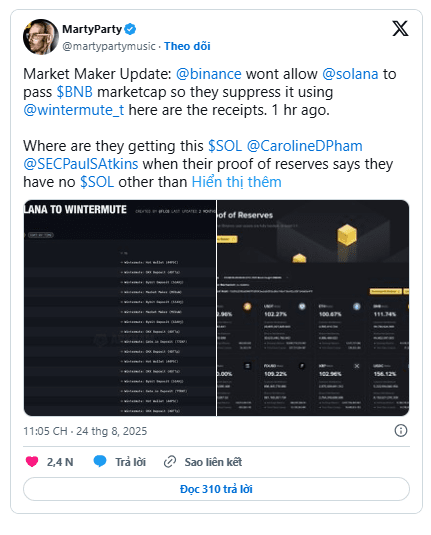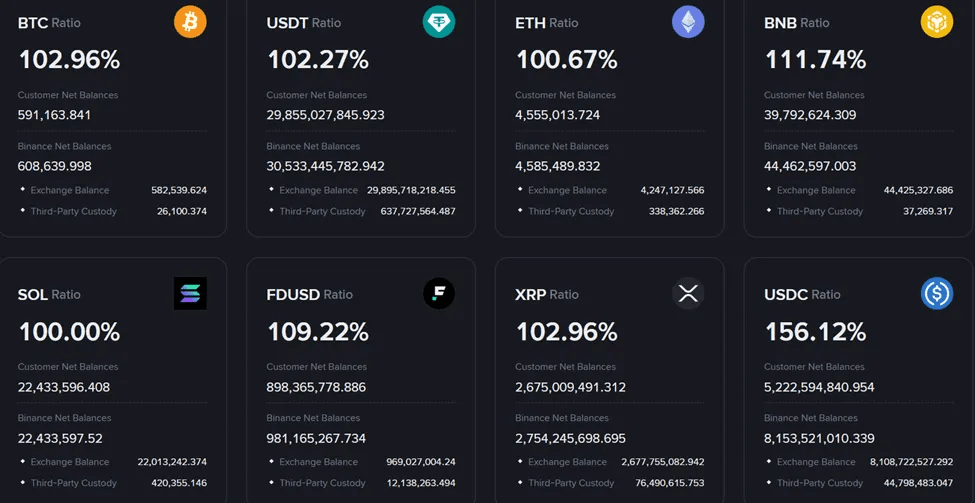Once again, Binance – the world's largest cryptocurrency exchange by trading volume – is at the center of controversy following allegations that they are intentionally stifling the growth of Solana (SOL) to protect the position of the BNB token.
Allegations: Binance and Wintermute "Colluding" to Prevent Solana from Surpassing BNB?
On social media X (Twitter), analyst Marty Party sparked the debate by claiming that Binance is collaborating with Wintermute – a well-known market maker – to ensure that Solana's market cap does not exceed BNB.

Marty Party also published "evidence" and questioned the transparency of Binance's trading activities:
"How can Binance provide liquidity for SOL when their proof of reserves (PoR) does not show any Solana beyond customer deposits?"
According to data at the time of writing, Solana is trading at $203 with a market cap of $109.7 billion, only behind BNB at $865.97 with a market cap of $120.6 billion.
Binance's PoR shows they only hold 22.433 million SOL, all of which are customer deposits, including 22.013 million SOL in the exchange's wallet and 420.35 SOL in third-party custody.

The "Covert" Alliance with Wintermute?
This is not the first time Binance and Wintermute have been suspected of having a shady relationship.
Five months ago, there were reports that Wintermute participated in coordinated sell-offs causing many small tokens, like ACT, to plummet – and Binance was said to be involved.
Seven months ago, Binance also faced investigations related to a $20 million transaction involving Wintermute.
These events raise questions about the true role of market makers – do they merely provide liquidity and reduce price volatility, or do they also participate in manipulating the market for their own benefit?
Conflict of Interest & Crisis of Trust
If the allegations that Binance is using Wintermute to control liquidity flow and stifle Solana are true, this not only indicates a serious conflict of interest but also threatens the credibility of the PoR mechanism and the fairness of the open market.
Alan Knitowski, the founder and former CEO of NASDAQ-listed companies such as Cisco Systems and Phunware Inc., has strongly criticized:
"Is the new system even worse than the old one? Why do we accept such a fragile, corrupt, and easily manipulated system? It’s time to shut down Binance, arrest, and prosecute them."
These statements reflect the growing frustration from traditional financial investors (TradFi) – those who once believed that blockchain would bring about a more transparent, fairer market compared to the old financial system.
Solana Faces Its Biggest Challenge
This is a sensitive time for Solana. After a boom period in DeFi, NFTs, and meme coins, Solana is gradually becoming a challenger to Ethereum in the scalability space – and now could threaten BNB in the market capitalization race.
However, if centralized exchanges (CEX) still hold significant dominance, the biggest question remains unanswered:
How much power should centralized exchanges be given in determining market outcomes?
This debate could become a significant turning point – not only for Solana but also for the entire trust in the cryptocurrency ecosystem.




